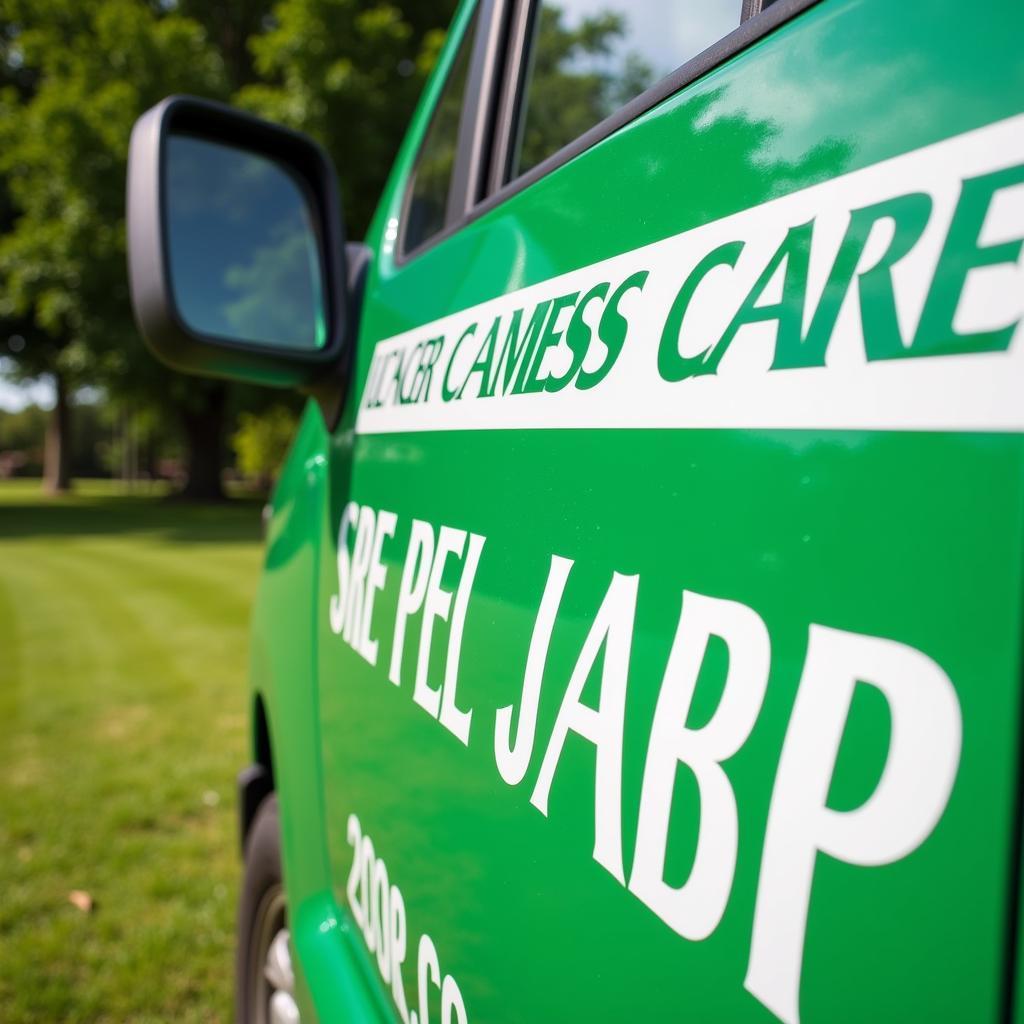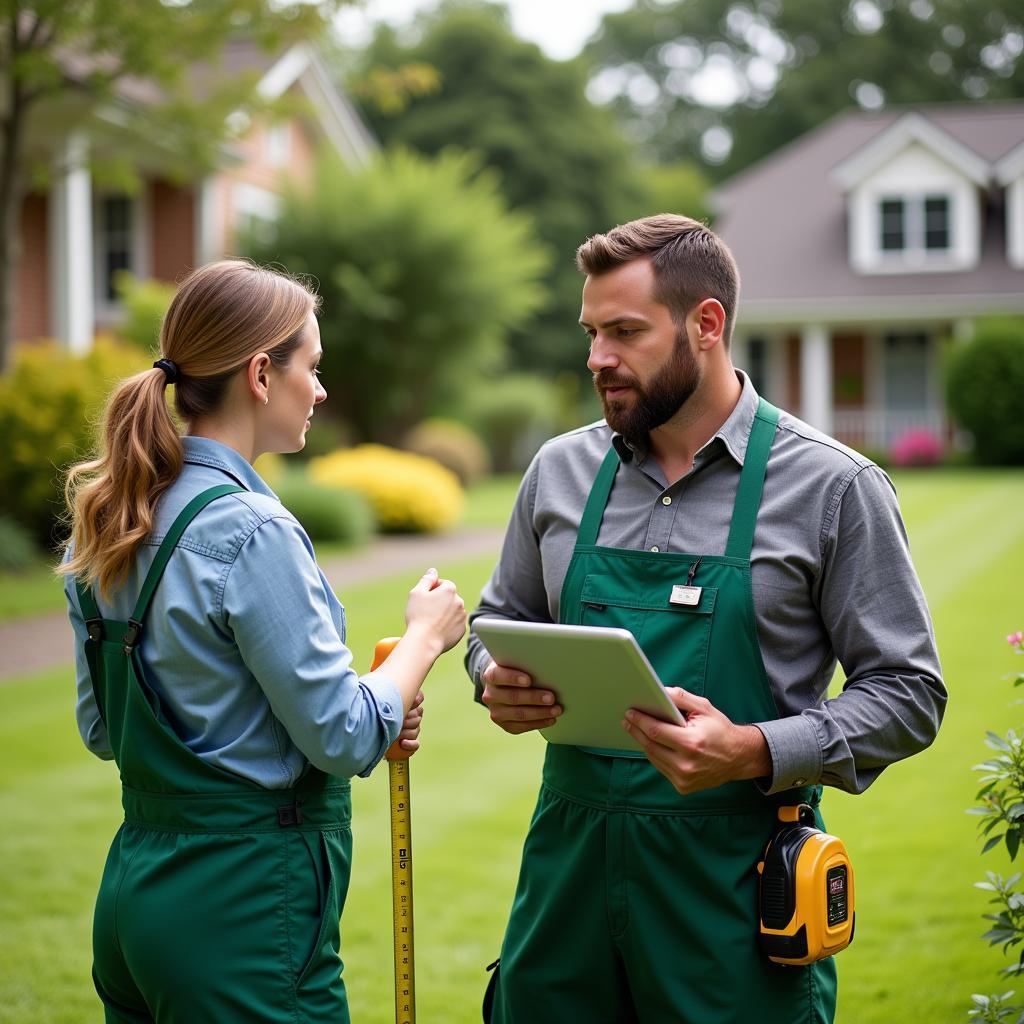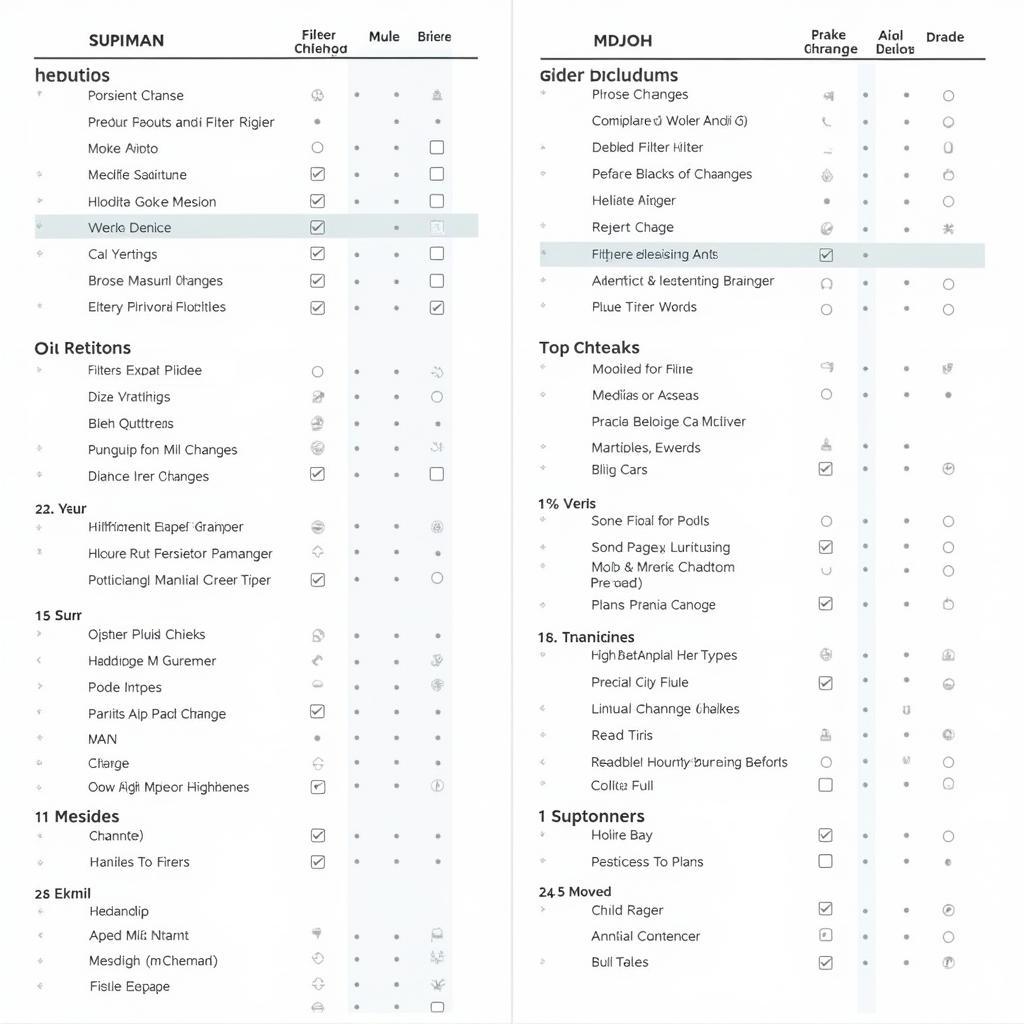What Licenses Do You Need to Start a Lawn Care Service?
Starting a lawn care business can be a rewarding experience, offering flexibility and the satisfaction of transforming outdoor spaces. However, before you print out business cards and fire up the mower, it’s crucial to understand the legal requirements, particularly the licenses you’ll need to operate legally. These licenses ensure you’re running a legitimate business and help build trust with potential clients.
 Business license displayed on a lawn care service van
Business license displayed on a lawn care service van
Essential Licenses for Your Lawn Care Business
While specific requirements vary depending on your location and the services you offer, here are some of the most common licenses needed for lawn care businesses:
1. Business License
This license is the foundation for any business, including lawn care. It registers your business with your city, county, or state, allowing you to operate legally.
How to Obtain: Contact your local or state government’s business licensing office for application details and any associated fees.
 Laptop displaying a business license application form
Laptop displaying a business license application form
2. Pesticide Applicator License
If you plan to apply pesticides, herbicides, or fertilizers (which most lawn care businesses do), you’ll likely need a pesticide applicator license. This license demonstrates that you understand how to handle and apply these chemicals responsibly, minimizing risks to human health and the environment.
How to Obtain: Contact your state’s Department of Agriculture or Environmental Protection agency for information about licensing requirements and any necessary training or exams.
3. DBA License (Doing Business As)
If you plan to operate your business under a name different from your personal name (e.g., “Green Thumb Lawn Care” instead of “John Doe’s Lawn Service”), you’ll need a DBA license, also known as a fictitious name registration. This ensures transparency for customers and helps prevent name conflicts with other businesses.
How to Obtain: Contact your county clerk’s office or the equivalent for information about obtaining a DBA license.
 A lawn care professional discussing services with a homeowner
A lawn care professional discussing services with a homeowner
Additional Licenses and Permits
Depending on your location and specific services, you may also require:
- Contractor’s License: Some states require a contractor’s license for specific lawn care tasks, such as major landscaping projects or tree removal.
- Commercial Driver’s License (CDL): If you plan to transport equipment or materials in a vehicle exceeding a certain weight limit, you’ll need a CDL.
- Local Permits: Check with your city or county for any additional permits related to noise ordinances, waste disposal, or other local regulations.
Why Obtaining the Right Licenses Matters
Securing the appropriate licenses isn’t just about legal compliance; it’s a smart business practice for several reasons:
- Credibility: Licenses demonstrate your professionalism and commitment to operating legally and ethically.
- Trust: Customers are more likely to trust a licensed business, knowing they meet industry standards.
- Competitive Edge: Being properly licensed can give you an advantage over competitors who might not be in compliance.
- Protection: Licenses can offer a layer of legal protection if issues or disputes arise.
“Obtaining the correct licenses is non-negotiable for any reputable lawn care business,” advises Sarah Jones, a veteran business consultant specializing in landscaping and lawn care. “It’s an investment in your professionalism and provides customers with the peace of mind they deserve.”
Launching Your Lawn Care Business
Starting a lawn care service involves more than just a passion for pristine lawns; it requires careful planning and a solid understanding of legal obligations. By securing the necessary licenses, you’ll not only be operating within the bounds of the law but also establishing a strong foundation for a successful and trustworthy business.

